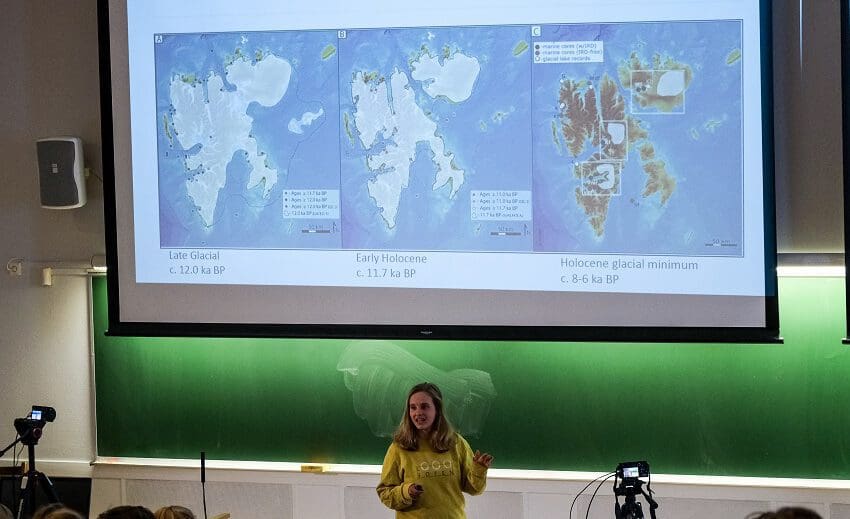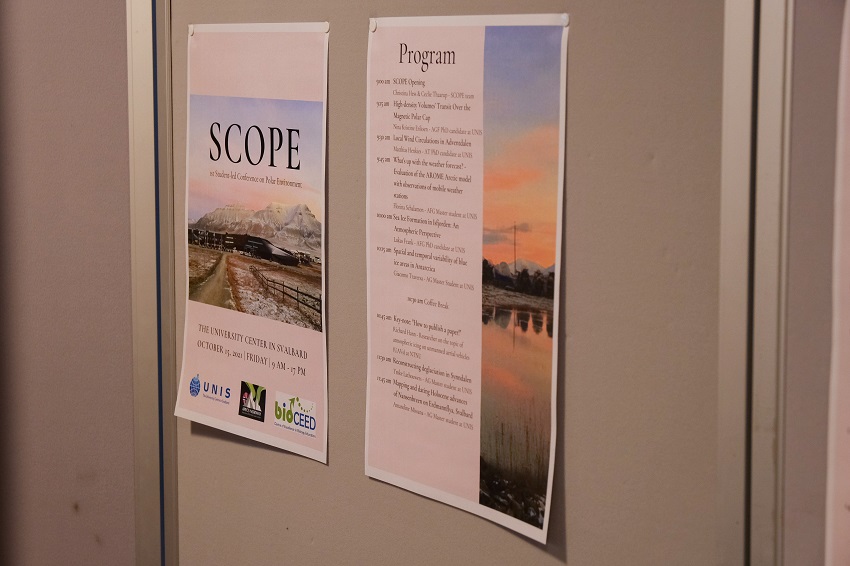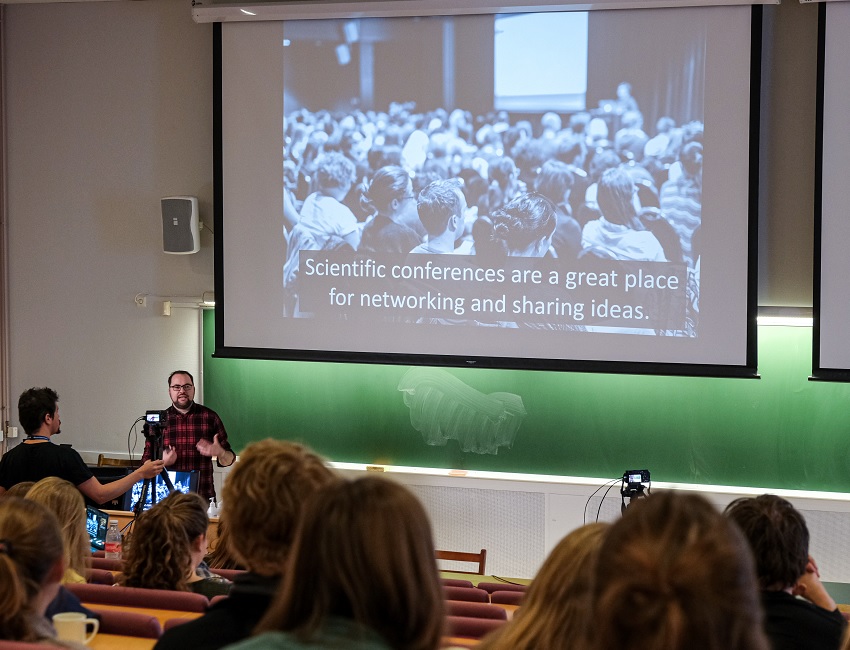SCOPE 2021: First student-led conference at UNIS

Daniela Walch is presenting her research to the students attending SCOPE. Photo: Maria Philippa Rossi/UNIS
Top image: Ymke Lathouwers is presenting her research to the students attending SCOPE. Photo: Maria Philippa Rossi/UNIS
In October, the first student–led conference on polar environment, SCOPE was held at UNIS. The organisers are satisfied with the outcome and will pass on the experiences to future students.
8 November 2021
Text: Maria Philippa Rossi
– We’re happy, grateful and sparked! I think these are the three adjectives that best explain how we feel after SCOPE, says Christina Hess.
– We are so grateful for all the contributions, outstanding presentations and above all, the help and positive feedback our team received from so many people. Encouraged by this, we will use our experience to prepare for passing on SCOPE as a concept to the next group of students managing this event.
Together with Daniela Walch, Hess has spent the past couple of months planning what was the first student-led conference on polar environment at UNIS. The project was also supported by Cecilie Thaarup, volunteering students and bioCEED members.
The conference was founded on the idea that students in their early study years usually don’t have a lot of opportunities to present their projects or ongoing work in a non-graded environment.
– Being students ourselves, we feel it is very important to get a platform where we can present our work, listen to fellow students, as well as learning about fascinating aspects and ideas without any pressure or anxiety, Hess says.

Gain confidence
Hess explains that the conference encouraged collaboration between university students and young people in town.
– Networking is a very important aspect during any scientific career. Why not start early by getting to know the future scientists of the Arctic in a relaxed atmosphere?
The SCOPE conference was held in Møysalen at UNIS, with the canteen as a mingling area. The fireplace was lit, lunch was provided, and it created a welcoming space for the students participating.
Hess answers quickly when asked what the students can gain from practicing public speaking:
– Confidence! And confidence comes with experience. With SCOPE we want to shape a safe space for students in town to share their skills, experience, and knowledge.
Daniela Walch adds that SCOPE has the potential of empowering students and get them involved across educational boundaries.
– Youth organisations (e.g., Fridays for Future) have for instance proven in the past years that the voice of the students should be heard. They are well-capable of engaging in decision making – especially when it comes to shaping the future world they will live in.
She says that discussions with your peers is the first step in developing a reflected opinion and sharing it in a productive way.
A lot of “firsts”
Being a pilot project, SCOPE challenged the students with a lot of “firsts”.
– One of the most challenging aspects might have been commitment to a project that is planned to take place more than 6 months later – most students at UNIS don’t usually make these long-term calls, Walch says.
Undeniably, COVID-19 also posed a continuous threat to their plans. Nevertheless, they’d adapted to deal with planning “one step at a time,” and the conference overall was not affected by Covid-19-restrictions.
Big plans for future conferences
This year it was only possible for six Folkehøgskole students to join the conference. Next year the plan is to involve the local youth even more.
– We missed the folkehøgskole and local high school students’ input and participation a lot, and would love to see both more involved in the planning of the next conference, as well as participating in the final event, Walch says.
Overall, the organisers have seen the potential of SCOPE. They have established a first foothold of the concept within the bigger scheme of polar education.
– To reach the next level of engagement, it would be great to see some workshops with hands-on-sessions or presentations of student-projects that are tackling questions of Polar Environment and that participants can engage in.
– SCOPE could also profit from more time, so we will look into the possibility of hosting the conference over two days next time, Hess concludes.
